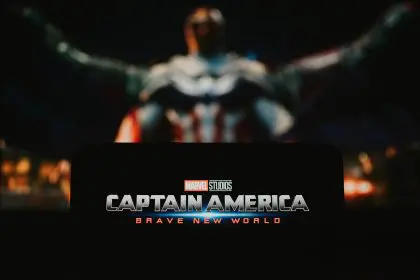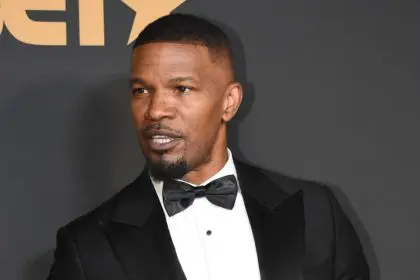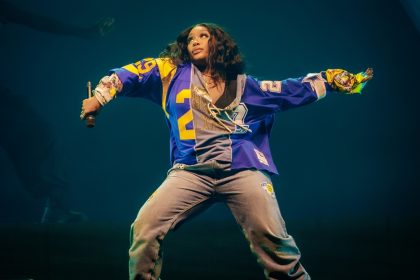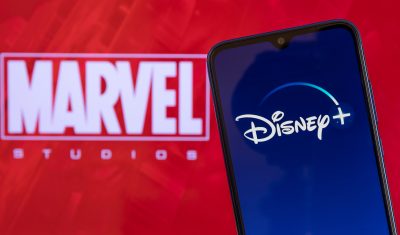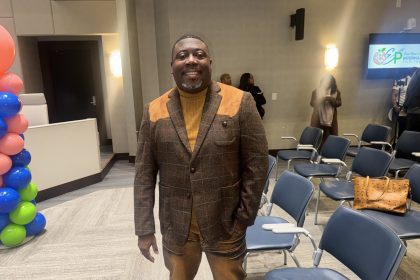
Before he was dubbed one of the “Important people to watch under 25,” rising filmmaker Taylor Ri’chard first got his start at Urbanworld Films as an intern. After graduating from Dillard University in New Orleans with a bachelor’s in communications and film, Ri’chard has dedicated the last 10 years to writing, producing and directing.
Some of Ri’chard’s accolades include working as a production assistant for the Academy Award-winning HBO documentary, “Murder on a Sunday Morning” and as a producer for WB/UPN TV’s “Where’s the Music?”
His momentum did not stop there. Ri’chard took his talents to Atlantato take his career in film to the next level. In 2009, Comcast Communications bought the rights to a sketch of Beyoncé’s “Single Ladies” Ri’chard wrote. The company featured the sketch on the company’s on-demand parody channel, which earned his work a No. 1 rating.
Now the owner of his own film production company, 3rd Fathom Entertainment, Ri’chard is currently set to release his debut horror film, The Final Project. The film will be released on Feb. 12 at Regal Hollywood 24, Regal Mall of Georgia and Regal Town Center in Atlanta.
Rolling out had the chance to catch up with the filmmaker to discuss more about his career and upcoming projects.
Let’s talk about The Final Project, what was the process of creating of this film? What story did you want it to tell?
What I wanted to tell was the story of the plantation in Louisiana called Chretien Point. In choosing to do that as a footage film, I believed people would get more of a realistic feeling when they watch it. Styling a film like that really consists of finding the right people who could play the role without acting. They had to exemplify these personalities as who they are.
There seems like there are layers to this story. Are there some undertones in the film as far as the significance of race in America?
Well, I feel a lot of people think that we talk about slavery because of the context of where it was. What I did do, I did not kill the Black guy first [laughs], I introduced the world’s first Black female antagonist. When you watch the movie, you will see what I’m talking about. That’s about as far as we dealt with race. We really didn’t make it a racial issue. We really wanted to make it more about the folklore of Louisiana and bringing those ghost stories to life and really showing the highlight of some of the things that went on at that time and how people still believe anything you tell them.
Louisiana has a rich culture, did you film it there?
No, we actually filmed it right here in Georgia. Covington, Georgia. That was part of the whole process of getting everything– finding a location that matched the house that we were talking about. A lot of people that are from Louisiana, they have no idea that I didn’t film it in Louisiana.
How long did it take to make the film?
Once we got everything situated, it took about six weeks to get the movie done as far as the principle shooting. But over time, we added scenes. I actually just added a new ending to the movie earlier last year.
How are you inspired to do more?
Considering that I am an indie filmmaker, I didn’t really seek Hollywood’s permission to allow me to do what I need to do. Being one of the first Black horror filmmakers, you’re in a lane we really don’t stand in. I firmly believe that if you want to get the type of recognition you’re looking for, you have to create the type of avenues in which you seek to be seen. Nate Parker did his thing with Birth of a Nation. He produced and wrote what he wanted and gave himself a starring role in that film and it paid off for him. And that’s what we need to do, we have tons of significant Black actors, actresses, and producers who can create good content that would get recognition from the Academy Awards. Does there need to be more diversity? Of course. But I firmly believe that people should be awarded on their merit. To get to that level and dealing with that type of system, we have to all come with our A-game and it’s going to take us being diverse so that we can show the world what diversity looks like by doing different types of roles and not just the same thing over and over again.
It seems a lot of people see films and want to be an actor. What’s your advice to them?
I went to school for this and I got intimidated in the beginning. I went to corporate America and worked at Blockbuster as a regional manager and never thought about filming. It was always something I felt should have done but I needed to make money. And then one day, working for someone else, I realized that I was very talented. I felt I was more than what was happening. So I made a conscious decision to walk away and I won’t lie it was the hardest thing I ever did in my life. To leave my six-figure salary job to go to nothing, you know, to go to film. That was a very hard struggle and my only advice I could give anybody who wants to do this or be in this business, you have to leave your emotions at the door because n one owes you nothing. Nobody is going to give you anything.
Where will The Final Project premiere?
It starts at the Regal in Atlanta, Kennesaw, and Buford. Then we’re going to grow to the Louisiana markets. There’s going to be Houston adding inn March. We’re going to have New York, Los Angeles, Ohio, and then more cities to come as we grow.
Give some advice on how to get to the level you’ve reached.
Well, the truth of the matter is don’t give up. I can’t tell you how many times I heard the word ‘no’ or “we don’t like the film, we don’t want it” “we’re not interested.” I’m just being honest. I heard ‘no’ lots of times. For years, I heard the word ‘no.’ Then I found an independent film distribution in New York. What they do is, if you can basically create the capital that you need, they can create your film because they have the ‘know-how’ and the team to make it happen. And that’s exactly what happened. I thought outside the box. You cannot make a movie and just assume it’s going to go to the theaters. You just have to keep beating on the doors. Like I said, it goes back to understanding the business side of things and creating a business plan for your movie so you can execute it and that’s what I did. I followed my business plan and eventually I go to where I needed to be.

